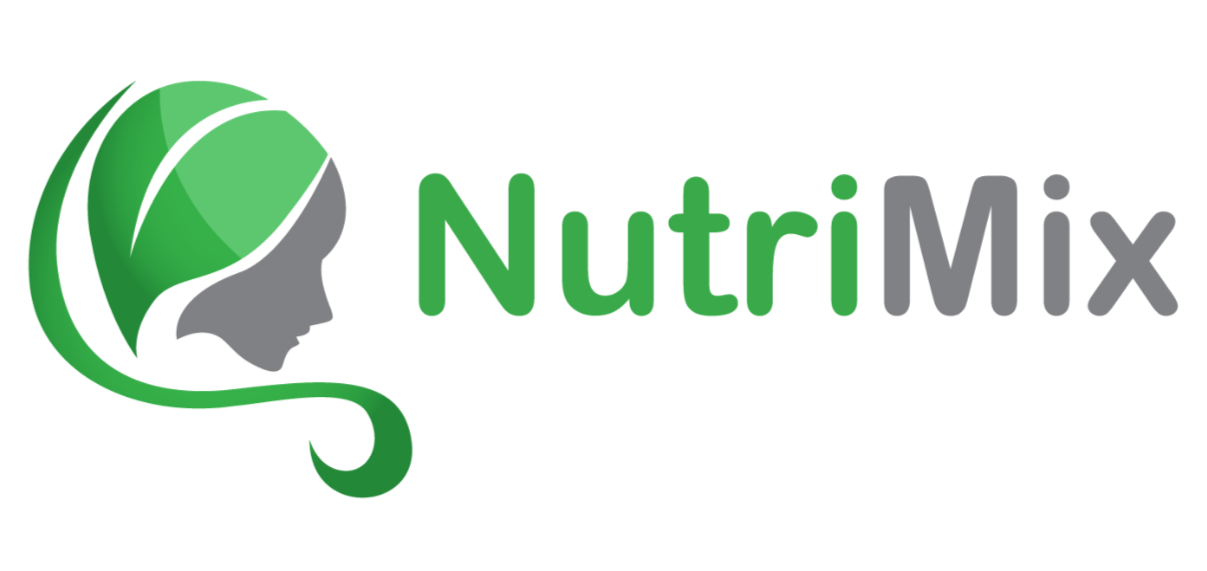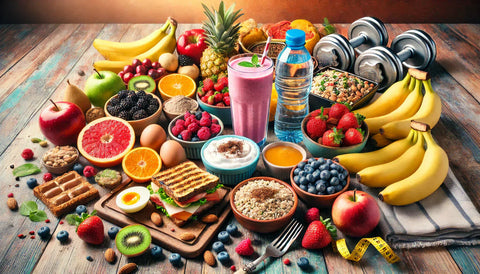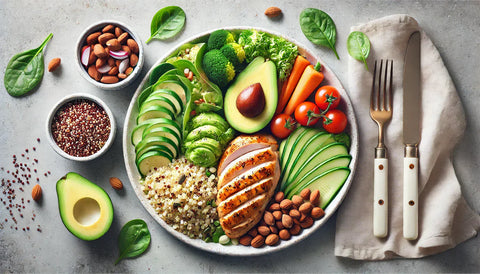Fueling your body correctly is just as critical as your exercise routine. When you eat the right foods at the right times, you can enhance performance, boost energy levels, and accelerate recovery. In this guide, we delve deep into the science of pre- and post-workout nutrition, share practical meal planning tips, and address common misconceptions to help you get the most out of every training session.
The Science Behind Fueling Your Workouts
Understanding Energy Metabolism
At the core of exercise nutrition is energy metabolism. Your body converts the food you eat into energy through various metabolic pathways:
- Carbohydrates: Broken down into glucose, they serve as the primary and quickest source of energy, especially for high-intensity workouts.
- Fats: Offer a slower-burning fuel, ideal for prolonged, moderate-intensity exercise.
- Proteins: Although not a primary energy source during workouts, proteins are vital for muscle repair and growth post-exercise.
Each of these macronutrients plays a role before and after your workouts, supporting both performance and recovery.
Nutrient Timing and the “Anabolic Window”
There’s a period post-exercise—often referred to as the “anabolic window”—when your muscles are particularly receptive to nutrients. Consuming the right mix of carbohydrates and proteins during this time can maximize glycogen replenishment and stimulate muscle repair. While this window may last up to several hours, optimizing your nutrition immediately after a workout can help set the stage for recovery.
Pre-Workout Nutrition: How to Power Up

Why It Matters
Before you begin your workout, your body needs a quick and accessible source of energy. A well-designed pre-workout meal or snack ensures that your blood sugar levels are optimal, and your muscles have the necessary fuel to perform efficiently.
What to Eat Before a Workout
-
Quick-Digesting Carbohydrates:
Foods such as bananas, berries, or a slice of whole-grain toast provide easily digestible sugars that rapidly convert to energy. -
A Touch of Protein:
Adding a moderate amount of protein—think Greek yogurt, a protein shake, or a few nuts—helps safeguard muscle tissue and prepares your body for muscle contractions during exercise. -
Healthy Fats in Moderation:
Incorporate small portions of healthy fats, like avocado or nut butter, to ensure a slow, sustained energy release. However, avoid consuming large amounts of fat as it may slow digestion.
Timing Is Everything
For optimal performance, plan your pre-workout meal about 30 minutes to 2 hours before exercise. If you’re eating a larger meal, you may need a longer window to allow for proper digestion. Experiment with timing and food combinations to discover what best suits your body’s needs.
Post-Workout Nutrition: Rebuilding and Recharging

The Critical Role of Recovery
After your workout, your body enters a repair mode where replenishing energy stores and rebuilding muscle fibers is essential. The right post-workout nutrition can help reduce muscle soreness, decrease recovery time, and prepare your body for the next session.
What to Eat After a Workout
-
Refuel with Carbohydrates:
Your muscles need to restore their glycogen stores, so include options like sweet potatoes, whole grains, or fruits to help restore energy. -
High-Quality Proteins for Repair:
Protein sources such as lean meats, eggs, dairy, or plant-based proteins like legumes provide the essential amino acids necessary for muscle repair and growth. -
Hydration and Electrolytes:
Rehydration is key. Whether through water, coconut water, or a beverage enriched with electrolytes, replacing lost fluids is crucial to the recovery process. -
Micronutrients Matter:
Vitamins and minerals play a role in reducing inflammation and enhancing recovery. Incorporate colorful vegetables and fruits to provide these vital nutrients.
Ideal Post-Workout Meal Ideas
-
Recovery Smoothie:
Blend together a banana, a handful of berries, a scoop of protein powder, a spoonful of almond butter, and your favorite milk alternative for a nutrient-dense shake. -
Balanced Meal Plate:
Combine grilled chicken or tofu with quinoa, steamed broccoli, and a drizzle of olive oil. This meal offers a balanced mix of macronutrients and micronutrients. -
Energy Bowl:
Create a bowl with brown rice, black beans, avocado, diced tomatoes, and a sprinkle of cheese or nutritional yeast to provide both energy and recovery support.
Tailoring Your Nutrition to Your Fitness Goals
Weight Loss and Lean Muscle Building
For those seeking to lose weight or build lean muscle, portion control and nutrient density are crucial. Eating nutrient-dense foods that offer a blend of protein, carbohydrates, and healthy fats helps maintain energy without excess calories. Consider meals that are high in protein to support muscle retention while losing fat.
Endurance Training and High-Intensity Workouts
If your workouts are long or particularly intense, you may need a higher intake of carbohydrates. Endurance athletes benefit from a steady supply of energy, so consuming small, frequent meals or snacks before and during prolonged exercise can help maintain performance levels.
Special Considerations for Different Body Types
Every individual is unique. Factors such as metabolism, dietary restrictions, and personal fitness goals mean that there is no one-size-fits-all approach to workout nutrition. Consulting a nutritionist or dietitian can provide personalized advice to match your specific needs.
Beyond the Plate: Other Factors Influencing Energy and Recovery

The Role of Hydration
Staying well-hydrated is critical, not only during your workout but also throughout the day. Even mild dehydration can impair performance, reduce endurance, and slow recovery. Aim to drink water consistently and consider electrolyte beverages if you engage in particularly intense or prolonged exercise.
Sleep and Stress Management
Rest and recovery aren’t solely dependent on nutrition. Adequate sleep and managing stress are also vital to optimize performance. Sleep aids in muscle recovery, hormone regulation, and overall well-being. Balancing your nutrition with quality sleep and stress reduction techniques can enhance your workout results.
Supplementation: A Helping Hand
While whole foods should be your primary source of nutrients, some individuals find that supplements—such as branched-chain amino acids (BCAAs), creatine, or electrolyte powders—can provide an extra edge. Always consult with a healthcare professional before introducing new supplements to your routine, as individual needs can vary.
Common Myths and Misconceptions
Myth: “You Can’t Eat Right Before a Workout”
One of the most common misconceptions is that eating before a workout will slow you down. In reality, a well-timed, light snack can significantly improve your energy levels and performance. The key is choosing easily digestible foods and giving yourself enough time to digest before you start exercising.
Myth: “Post-Workout Nutrition Isn’t That Important”
Some believe that the post-workout meal is optional, but recovery nutrition is essential. It not only helps to refill glycogen stores but also initiates the repair process, reducing the risk of muscle soreness and injury.
Myth: “Supplements Can Replace Whole Foods”
While supplements can be beneficial in certain contexts, they should never be a substitute for a balanced diet. Whole foods provide a complex matrix of nutrients that work synergistically to support overall health and performance.
Practical Meal Planning Tips for Busy Athletes
Pre-Planning Is Key
If you have a busy schedule, planning your meals in advance can help ensure you’re never caught without the right fuel. Prepare your snacks and meals the night before a workout, and consider batch-cooking for the week ahead.
Keep Portable Snacks on Hand
For those on the go, having portable snacks like energy bars, nuts, or fruit can make all the difference. These options are not only convenient but also nutrient-dense, providing a quick energy boost when you need it most.
Listen to Your Body
Perhaps the most important tip is to tune into your body’s signals. Experiment with different foods and timing to see what works best for you. Everyone’s body is unique, and personalized adjustments to your diet can lead to better performance and recovery.
Real-Life Case Studies and Personal Experiences

Case Study: The Endurance Runner
Consider an endurance runner who trains for long-distance events. They might start their day with a carbohydrate-rich breakfast such as oatmeal with fruit and a drizzle of honey, followed by a light snack like a banana and a handful of almonds before a run. Post-run, they consume a recovery shake with protein powder, berries, and a carb source like a slice of whole-grain bread. This combination helps maintain energy levels and supports muscle repair, enabling consistent performance over time.
Case Study: The Strength Trainer
A strength trainer may focus more on protein intake to support muscle building. Before lifting weights, they might opt for a small meal containing both carbs and proteins, such as a small turkey sandwich on whole-grain bread. After their workout, a balanced meal including lean meat, brown rice, and steamed vegetables helps replenish glycogen and provides the building blocks for muscle repair.
Conclusion
Optimal workout nutrition isn’t just about eating; it’s about eating smart. By understanding the science behind energy metabolism, fine-tuning your pre- and post-workout meals, and dispelling common myths, you can transform the way you fuel your body. Whether your goal is to build strength, increase endurance, or simply feel more energetic throughout your workouts, the right nutrition strategy can make all the difference.
Experiment with different foods, listen to your body, and don’t be afraid to seek professional guidance for personalized advice. With a balanced approach to pre- and post-workout nutrition, you’re well on your way to unlocking peak performance and faster recovery.



